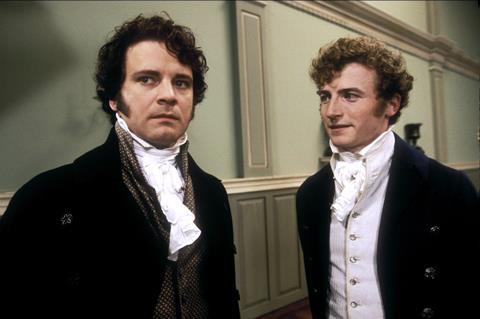‘Maybe I’m a romantic (okay, I definitely am), but something in me longs for the clarity we read about in old novels—not just the dresses and dances, but the dignity. I believe I am not the only member of Generation Z with these sentiments,’ says Lucy Macdonald.

Consider this scene from Jane Austen’s Pride and Prejudice:
Jane Bennet sat near the parlour window, her embroidery long forgotten. The sound of hooves startled her heart into hope—and moments later, Mr. Bingley entered the room, hat in hand and nerves evident.
After a few pleasantries, he turned to her mother and said,
“I know this is all very untoward, but I would like to request the privilege of speaking to Miss Bennet. Alone.”
With a flurry of delight, Mrs. Bennet excused herself. Bingley, left alone with Jane, wasted no time. He spoke plainly, of affection, of regret, and of the desire to make her his wife, if she still cared for him.
There was no game. No ambiguity. Just honesty and honour and the quiet courage of a man who knew what he wanted, and asked for it. Imagine that. Now scroll forward 200 years. It’s a Thursday night. A woman receives a text: “Hey you around” No punctuation. No context. Just a breadcrumb.
READ MORE: A Gen-Z guide to modern dating (Christians need help too)
She hasn’t seen him in two weeks, though their last dinner ended with laughter and a kiss. Since then—nothing. No call. No explanation. But now he’s resurfaced with a vague invitation. Not a plan. Just a presence. They aren’t dating. Not officially. But they’re not not dating either. They’re in a “situationship”: in other words, they have connection without clarity, intimacy without intention.
She spends more time decoding texts than enjoying his company.
She spends more time decoding texts than enjoying his company. Was that emoji a sign of interest, or just habit? Does a missing punctuation mark mean he’s annoyed? And those three dots… is he about to say something or just leaving her hanging? Every message feels like a puzzle, and she’s spending arduous amounts of time trying to solve them.
READ MORE: Dating apps not working for you? Here’s why you might be getting the matches but not the marriage
This isn’t every relationship, but it’s common enough to feel like a cultural pattern. Somewhere between ghosting and bread-crumbing lies the new normal, where desire is hinted at, not declared. And somehow, we’ve come to expect that. It makes me wonder what Jane Bennet would make of it. Would she wait three days to respond to a text to avoid seeming too eager? Would Mr. Bingley “like” her story but never call?
Maybe I’m a romantic (okay, I definitely am), but something in me longs for the clarity we read about in old novels, not just the dresses and dances, but the dignity. I believe I am not the only member of Generation Z with these sentiments. The Times recently noted how Jane Austen’s work is experiencing a notable resurgence, especially through audiobooks, which have soared in popularity among young adults in recent years. Austen’s work exhibit relationships in which romantic intentions are declared with clarity and ardent fervour. Based on their literary consumption, it seems that Generation Z, navigating the confusing world of modern dating, is craving this clarity.
READ MORE: There’s a new dating concept for people bored of apps, and it has the potential to connect Christians
Thankfully, there’s still hope. A friend of mine recently got married after a dramatic courtship that set the bar high. Luke stole Daisy away to a wine farm under the guise of needing to pick something up. But in reality, he had prepared a table decorated with yellow roses—her favourite flowers—a poem he had written, and a drawing of the two of them together. Two glasses of champagne waited to celebrate the moment. Don’t be mistaken, this was not a proposal, this was simply him asking her to be his girlfriend.
Daisy said she felt pursued very intentionally by Luke, and it made all the difference. When she told me their story, it wasn’t the typical swipe-right tale. It was heartfelt, clear, and full of intention. She described how Luke’s consistent, open pursuit made her never have to guess where she stood—he showed his feelings clearly and repeatedly. It reminds me that even in this swipe-left, soft-launch culture, there are still people who mean what they say—and say it.
In our walk with the Lord, we don’t need to wonder how he feels about us. Jesus loves each one of us without hesitation and with extreme intentionality. Even when we are lost and flailing he travels into our dark places to pursue us.
So here’s a challenge—to the Bingleys and Janes alike: don’t settle for less than clarity. Don’t accept games. Speak your heart plainly and ask for the same. And next time you get a vague text or a confusing emoji, remember: somewhere out there is a Luke with yellow roses, like a modern Mr. Bingley, ready to make things beautifully clear.


































1 Reader's comment